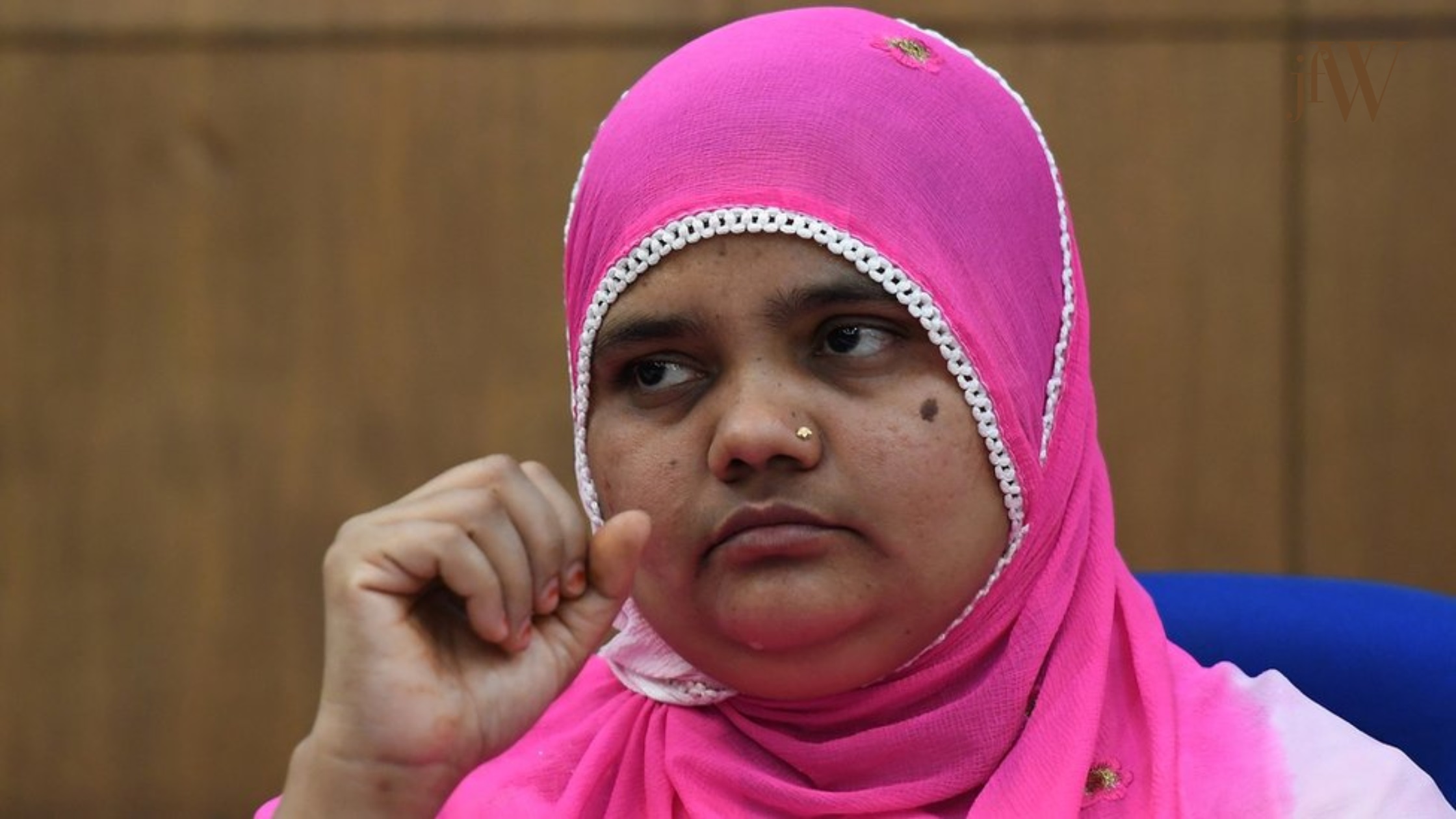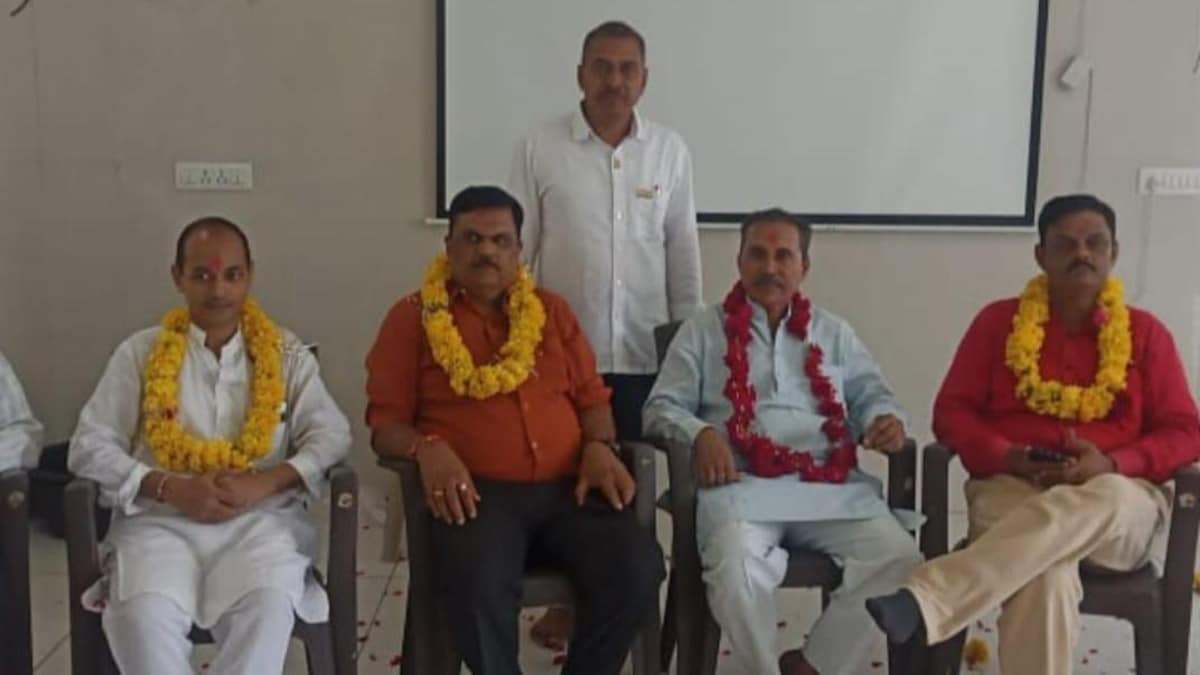
The incident which became a litmus test to judge their response was the release of 11 convicts of Bilkis Bano gangrape case on August 15. The silence was loudest from the 11 women Central Ministers, the highest number of women ministers in the last 17 years, writes Amitabh Srivastava
We have been calling them our ‘better half’, the ‘Adhi Abadi’, ‘Stree Shakti’ the ‘Durgas’ of the family to tell ‘Women’ that they are different from us the Men.
But are they?
Their loud silence when they need to speak out and at times their seeming connivance when brutal atrocities are being committed on their own species makes one wonder if they are just a part of Adam’s rib.
The Genesis tells us how God created Eve from the rib of Adam and this was interpreted to mean that Eve was supposed to be by Adam’s ‘side’ all the time and equal to him.
But looking at the way women, particularity in India, have been reacting to issues where they need to speak out it would appear that they have become a part of men’s persona, their psyche and are no different from them. Sometimes even worse.
The most recent incident which becomes a litmus test to judge their response was the release of 11 rapists of Bilkis Bano on August 15, the day India was celebrating it’s Azadi ka Amrit Mahotsav.
As we know Bilkis Bano was a 20-year-old and several months pregnant who was assaulted by men she had known for years in 2002. One of those who attacked her she had been calling ‘Chacha’ (uncle). She along with the others, known as brothers, gang-raped her. Not only that she became witness to her 14 family members being killed and their heads buried in sand with salt stuffed in so that they would permanently rot there. And yes, her three-year-old daughter was also murdered on that fateful March 3, 2002.
All these convicts are now out being ‘good Brahmins’ leaving Bilkis and her family once again cowering in fear.
The ‘silence of the lambs’ is loudest from the 11 women Central Ministers, the highest number in the last 17 years.
Nirmala Sitharaman, the second woman Finance Minister in the country was recently heard and seen taking on Sonia Gandhi in an incident involving her colleague Smriti Irani in Parliament. All that Sonia Gandhi had told Smriti Irani was ‘Don’t talk to me’ and the Finance Minister took it as ‘terrorising’ my colleague.
Smriti Irani who broke the glass ceiling, so to say, by defeating Rahul Gandhi from the traditional Nehru family bastion of Amethi sent defamation notices to news channels and senior Congress functionaries because the name of her daughter was mentioned in connection with a restaurant in Goa. But where does the Sas Bhi Kabhi… Loudmouth stand when a case of proven atrocities against Bilkis Bano is making headlines.
This is not to say that women are not reacting. Mohua Moitra from TMC did file a petition in the Supreme Court. But she is a usual suspect and sometimes even her party chief Mamata Banerjee has to disown her statements.
Another group of 600 prominent personalities including women rights activists and other NGOs also filed a Public Interest Litigation (PIL) in the Supreme Court to revoke the remission of the 11 convicts involved in the Bilkis Bano case.
For their courage under such adverse circumstances they need to be named. These organisations include Saheli Women’s Resource Centre, All India Progressive Women’s Association, Uttarakhand Mahila Manch, Forum Against Oppression of Women, Pragatisheel Mahila Manch,Centre for Struggling Women, Stree Mukti Sanghthana, Women and Transgender Joint Action Committee among others.
But a wider concern arising out of such attitude of women MPs of the ruling BJP is whether women reservation in Parliament and state assemblies would really help women.
Do women in powerful positions help women? Here it would be interesting to recall that during Indira Gandhi’s tenure as the Prime Minister from 1967-71, 1971-1977 and again during 1980-84, not a single woman was appointed as a cabinet minister.
However, the second and third ministries of Indira Gandhi included Dr Sarojini Mahishi, Nandini Satpathy, Sushila Rohatgi and Saroj Khaparde as ministers of state.
Even so for whatever its worth, the Women Reservation Bill story is worth a look.
The first Constitutional Amendment Bill for Reservations was passed in 1993 to reserve one third seats for women in local elections as Sarpanch.
But trouble arose when this was sought to be extended to parliament and state assemblies although it was clarified that this was meant to be done on rotational basis.
There have been several attempts to introduce the bill both by the UPA and the NDA.
Parties of the north, especially Rashtriya Janata Dal and Samajwadi Party have been hostile every time the Bill was sought to be brought up because they wanted a quota within quota to be introduced. The BJP appeared quite positive officially although later it also succumbed to the quota criteria when Uma Bharti opposed it in its current form.
The situation today is that the reservation bill has been passed by the Rajya Sabha but is yet to be passed by Lok Sabha.
Such was the hostility of these parties that in May 2008, when Law Minister HR Bhardwaj was introducing the bill in the Rajya Sabha, he was sitting in the middle row of the treasury benches between Kumari Saileja and Ambika Soni while other MPs like Jayanti Natarajan, Alka Balram Khashtriya stood guard to protect him from the MPs of the Samajwadi Party ready to snatch the Bill and tear it off.
An angry Abu Asim Kazmi of SP attempted to snatch it from Bhadwaj but Renuka Chowdhary, the then Minister for Women and Child Development, literally pushed him away.

There was a time when all women MPs irrespective of party affiliations including Sonia Gandhi and Sushma Swaraj who had contested against each other, joined hands to get the bill passed but a hostile Lalu and Mulayam combine resisted all such attempts.
Can all Women MPs even think of coming together on the basis of issues today and will it be worth it?
With 303 BJP MPs in Lok Sabha is it not surprising that there is no talk of 33 per cent reservations for women in parliament now.
A recent case is that of the Marital Rape Act which has not been passed by Indian Parliament so far despite the Verma Committee recommending it.
As of today, 77 out of 185 countries criminalise marital rape while 74 allow women to file complaints. Thirty four countries do not allow any such provision according to Amnesty International.
One would have expected this law to be enacted in India as we have had two very powerful and vocal Ministers of Women and Child Development in the Modi cabinet – Maneka Gandhi earlier and Smriti Irani currently, but both have expressed strong resentment against the law, which they said would break the Indian families. This when a survey by it’s own NFHS survey conducted in 6.37 lakh households in 28 states and UTs has revealed that 32 per cent of married women have suffered spousal physical, sexual or emotional violence and 27 per cent said that they suffered one form of violence in the last 12 months prior to the survey.
The matter went to Delhi High Court which delivered a split verdict because the Centre abdicated its responsibility and refused to take a stand.
It’s also time today to recall the three-decade old sexual assault case of Chandigarh involving 14 year old Ruchika Girhotra by an IPS officer SP Singh Rathore. Her family was harassed for years finally leading to her committing suicide.
I recall this case today only because throughout the trial, the wife of Rathore, an advocate, was fighting his case.
I had once asked Maneka Gandhi whether any SHO had been removed for non-registration of an FIR of sexual assault even though Justice Verma committee set up after the Nirbhaya case had recommended very strict deterrent for this lapse.
Maneka Gandhi is no longer in that Ministry but she was also falling for the myth that women are more sympathetic to girls than men.
But statistics of the honour killings in the western UP and Haryana etc clearly indicate that the grandmothers in the families are the fiercest about the family honour. They don’t mind beheading both defaulting girl from their family and her lover’s and throwing their bodies in the river or hanging them on trees. Hence, even if we have more women in the police force it would not really change the ground situation.
As recent as January 21, 2021 Justice Pushpa Ganediwala, a single Judge Bench of Bombay High Court ruled that merely groping did not amount to sexual assault unless the accused removed the top of the girl and slid his hand inside her clothes.
This judgment sent such shock waves across the country and that the Supreme Court condemned her casual approach to the crimes under POCSO and reversed her judgement.
However that brings me to the point. Does being a woman really matter or they chips of the same ‘Rib’ like Adam and Eve?












